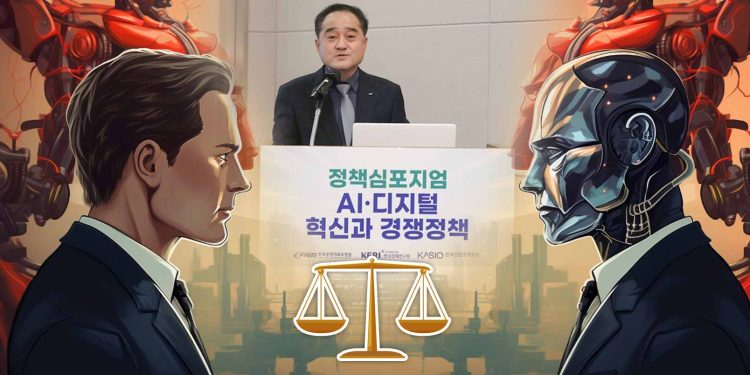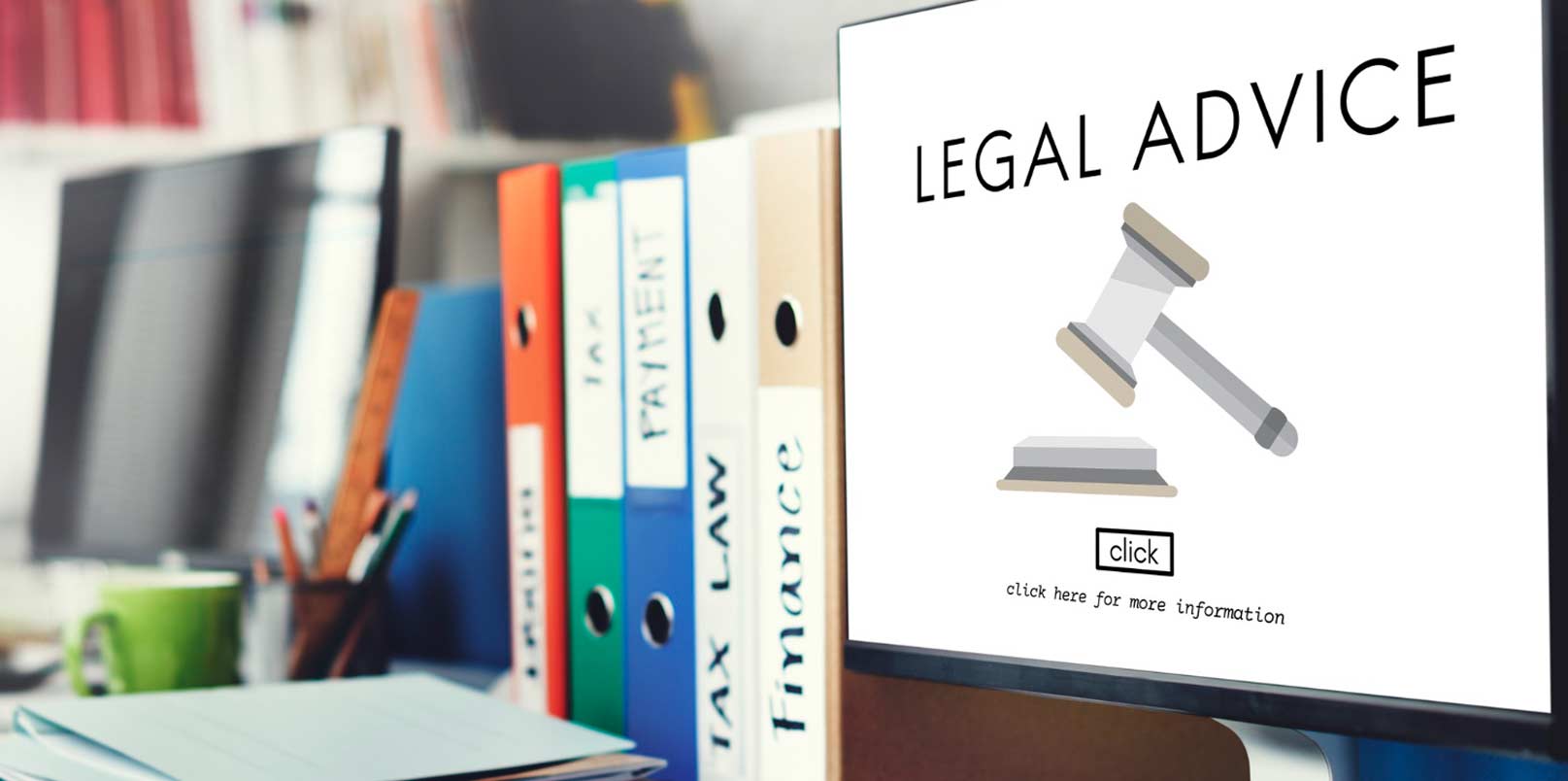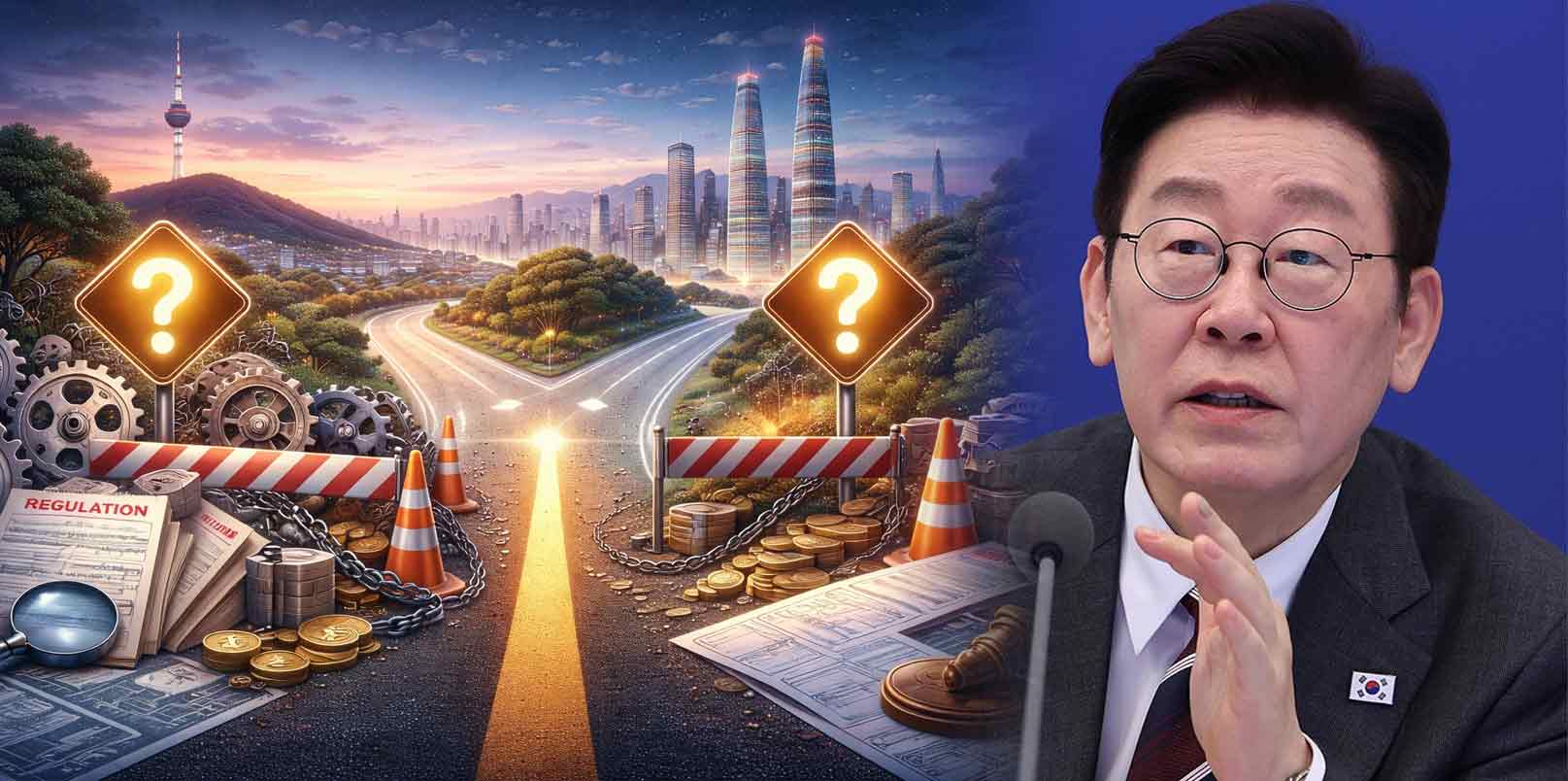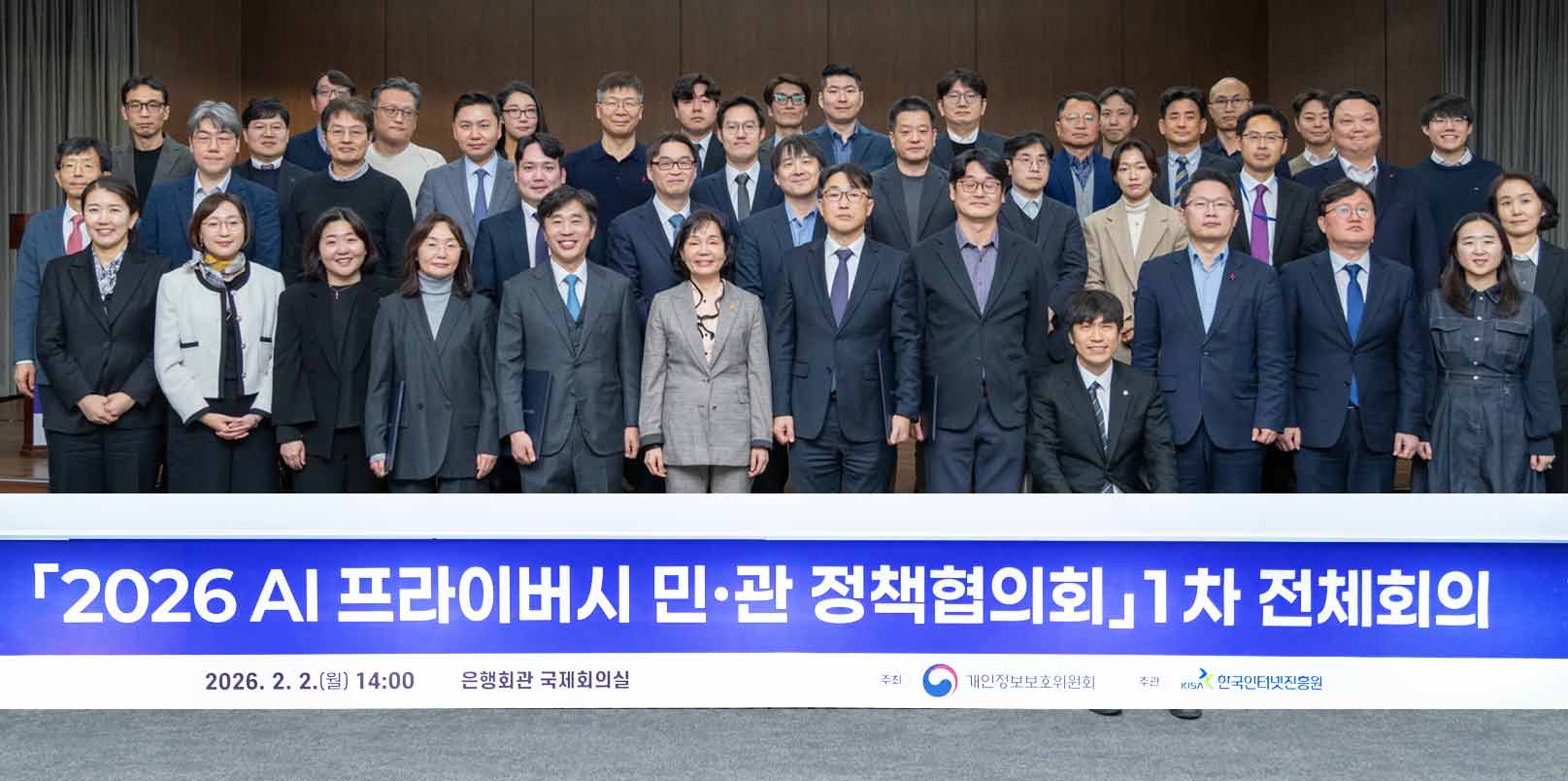Korea’s competition policymakers and researchers are grappling with a growing challenge: how to protect market fairness without constraining artificial intelligence innovation. As AI technologies redefine market power and corporate behavior, Korean experts are urging a redesign of competition policy that preserves innovation while maintaining trust and transparency in digital markets.
KERI Hosts Joint Symposium on AI and Competition Policy
On November 13, the Korea Economic Research Institute (KERI) held a joint symposium titled “AI and Digital Innovation: Implications for Competition Policy” at the FKI Tower Conference Center in Seoul. The event was co-hosted with the Korea Fair Trade Mediation Agency and the Korea Academic Society of Industrial Organization (KASIO).
The discussion centered on how Korea’s competition framework must evolve to address structural changes brought by AI and data-driven industries. Experts emphasized that while AI innovation can stimulate economic growth, it also introduces complex competition risks that traditional policies were not designed to handle.
In his opening remarks, Jeong Cheol, Chief Policy Representative of the Federation of Korean Industries and President of KERI, stated that “as AI transforms industrial structures, government and companies must work together to create new rules for competition that are both fair and flexible.”
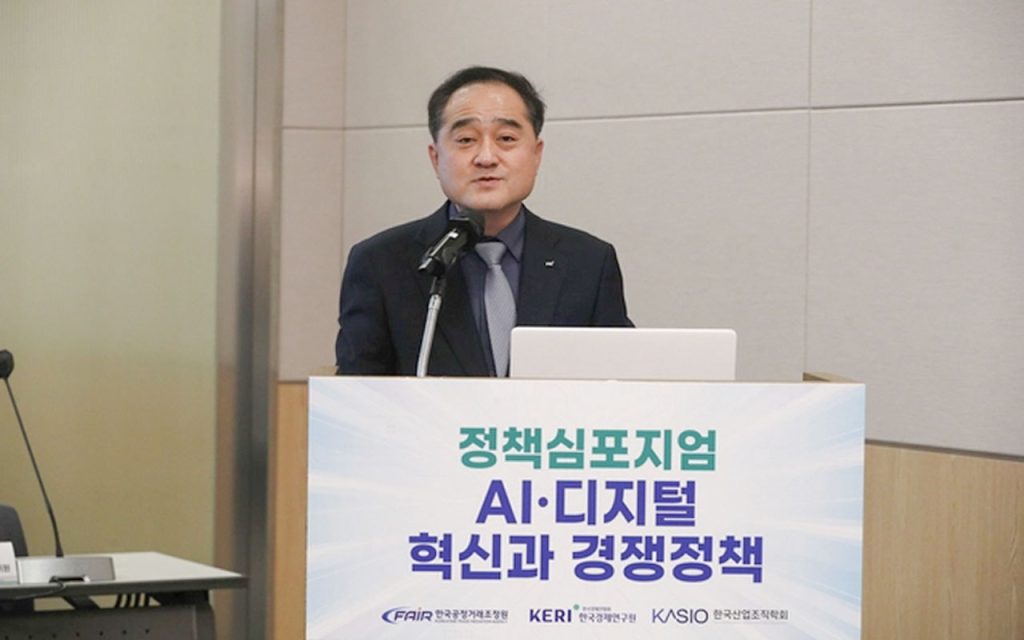
Why AI Challenges Existing Competition Rules
KERI Research Fellow Yoo Min-hee analyzed how the rise of generative AI is reshaping market competition. She pointed out that complex competition dynamics are expanding market uncertainty and weakening global competitiveness for domestic firms.
Yoo Min-hee also stressed that the government must uphold fairness and transparency as key principles while encouraging industry-led self-regulation and collaborative frameworks to maintain balance between innovation and equity,
“The government should keep fairness and transparency as core principles, while combining industry-led self-regulation and joint agreements to build a new AI competition-policy framework where innovation and fairness coexist.
Competition authorities must also evolve into partners that enhance predictability and trust while supporting innovation, and they should strengthen their understanding of AI-industry characteristics and data-analysis capabilities.”
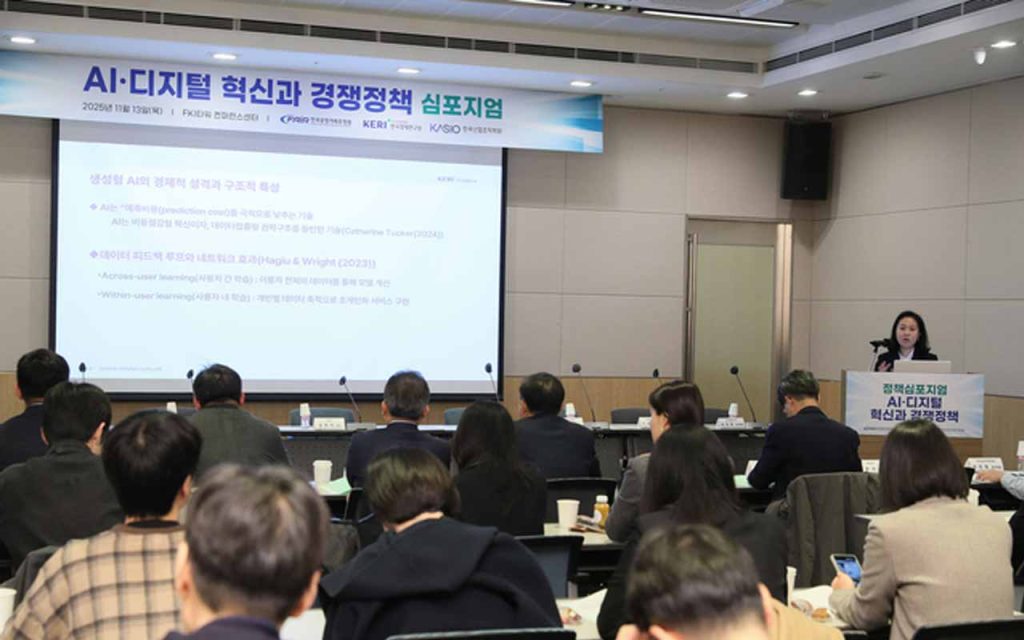
Another presentation by Lee Jin-hyung of the Korea Fair Trade Mediation Agency examined “garden leave” practices—paid non-compete agreements that restrict AI professionals from joining competitors for a set period.
Additionally, Lee Jin-hyung warned that overly restrictive employment rules could suppress innovation and limit labor mobility, and called for a more balanced guideline,
“Balanced guidelines are needed to harmonize corporate-interest protection with the specific characteristics of each industry.”
Shifting From Protecting Competitors to Protecting Competition
Panel participants shared a common view that Korea’s competition policy must pivot from protecting individual companies to protecting the process of competition itself.
Experts argued that regulation must account for the pace of technological convergence, the role of data ownership, and the growing concentration of AI capabilities in a few dominant players.
They called for sector-specific monitoring systems that reflect industry diversity instead of relying on uniform standards. Such systems would allow regulators to respond quickly to emerging AI-related risks while minimizing unnecessary intervention that could slow innovation.
What This Means for Korea’s AI and Startup Environment
Korea’s growing debate over AI-era competition policy has deep implications for its startup ecosystem. The next generation of Korean AI startups is entering markets dominated by large-scale platforms, where access to data, compute resources, and partnerships increasingly determines survival. And this is especially crucial as the government is working on its AI Transformation (AX) strategy to become one of world’s top three AI powerhouse.
A policy shift toward “trust-based, transparent, and flexible regulation”—as proposed during the symposium—would help level the field for startups and SMEs that innovate in specialized or vertical AI applications. It could also influence how Korean AI companies compete internationally, as the country aligns its approach with broader frameworks being debated across the EU, Japan, and the United States.
The symposium’s message resonates across Asia’s emerging digital economies: sustainable AI innovation requires not only technological capability but also institutional frameworks that ensure open, fair, and collaborative markets.
Building a Fair and Adaptive AI Market Framework
The KERI-led discussion reflects a broader national shift toward AI governance that supports innovation while preventing concentration of market power. Policymakers appear increasingly aware that outdated competition rules could discourage experimentation and slow digital transformation.
While South Korea is working on a broader framework for AI Basic Law this year, the next stage for Korea’s AI policy will still likely involve creating structured guidelines for market monitoring, self-regulatory industry agreements, and transparent data-sharing standards.
If implemented, these measures could strengthen Korea’s position as a model for AI-driven but fair-market economies in the Asia-Pacific region.
– Stay Ahead in Korea’s Startup Scene –
Get real-time insights, funding updates, and policy shifts shaping Korea’s innovation ecosystem.
➡️ Follow KoreaTechDesk on LinkedIn, X (Twitter), Threads, Bluesky, Telegram, Facebook, and WhatsApp Channel.


